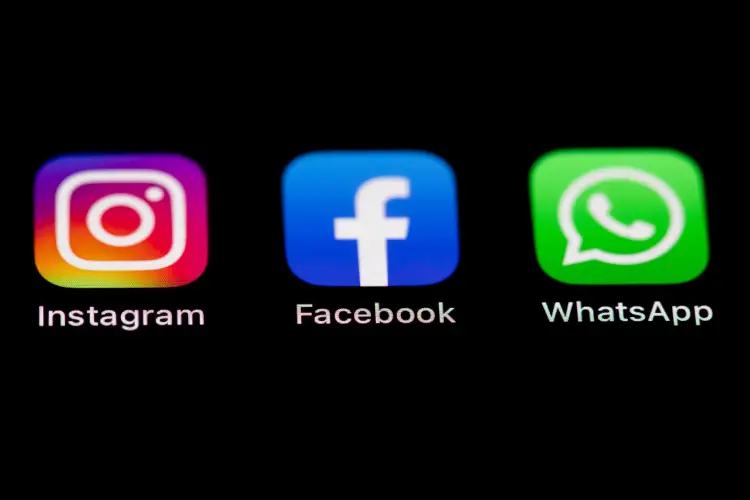
Facebook suffered a major outage on Monday, with billions of users around the world unable to access the social network, as well as other platforms it owns including Instagram and WhatsApp, for just under six hours. The incident, which highlighted the extent to which many businesses and individuals rely on the company’s messaging services, coincided with a legal debate in the US about whether Facebook should be broken up, and could bolster the case for doing so.

Servers at the tech giant went down at around 6pm UK time on Monday, and started coming back online just before midnight. As well as Facebook users, the problem also reportedly affected the company’s staff, who were unable to access meeting rooms at its Silicon Valley headquarters as the door locking system went offline
Don’t yet know exactly what’s behind the DNS issue that’s knocked Facebook/Instagram/WhatsApp offline, but it’s really bad. Pretty much everything that runs through those three companies are inaccessible. Employees can’t even enter conference rooms because they’re IoT!
— Kevin Collier (@kevincollier) October 4, 2021
Facebook saw its share price tumble 5% as a result of the outage, which was the worst the company has suffered since 2008.
Why did the Facebook outage happen?
In a statement posted late on Tuesday, Facebook said “configuration changes on the backbone routers that co-ordinate network traffic between our data centres caused issues that interrupted this communication. This disruption to network traffic had a cascading effect on the way our data centres communicate, bringing our services to a halt.”
The problem also knocked out many of Facebook’s internal tools, making diagnosing the cause tricky, the company said. The statement added: “People and businesses around the world rely on us every day to stay connected. We understand the impact outages like these have on people’s lives, and our responsibility to keep people informed about disruptions to our services. We apologise to all those affected, and we’re working to understand more about what happened today so we can continue to make our infrastructure more resilient.”
Could Facebook be broken up?
Earlier on Tuesday, Facebook’s lawyers had asked the federal court in the US to throw out an antitrust lawsuit brought by the Federal Trade Commission (FTC) concerning the company’s purchases of WhatsApp and Instagram.
The FTC initially sued Facebook in December 2020, alleging it brought the apps, and other start-ups, to suppress competition, and stating that Facebook should be forced to sell them. This case was dismissed by a judge in June, who said the claims were invalid, but gave the FTC 30 days to file amended charges.
The FTC came back with a fresh lawsuit, alleging that "after repeated failed attempts to develop innovative mobile features for its network, Facebook instead resorted to an illegal buy-or-bury scheme to maintain its dominance. It unlawfully acquired innovative competitors with popular mobile features that succeeded where Facebook’s own offerings fell flat or fell apart." The FTC says Facebook "lured app developers to the platform, surveilled them for signs of success, and then buried them when they became competitive threats."
“Facebook lacked the business acumen and technical talent to survive the transition to mobile. After failing to compete with new innovators, Facebook illegally bought or buried them when their popularity became an existential threat,” said Holly Vedova, FTC Bureau of Competition acting director. “This conduct is no less anti-competitive than if Facebook had bribed emerging app competitors not to compete."
In its filing to the court, Facebook says the charges are "entirely without legal or factual support. This is as true now as it was before." A spokesman added that the company competes with myriad messaging services and social networks.
As yesterday's outage shows, however, WhatsApp and Facebook Messenger are the two dominant apps in the messaging market. Analysis by Similarweb shows WhatsApp is the top messaging platform in 58 countries, or 30% of the world. Facebook Messenger is the top app in 15 countries.
The incident "raises the question of how sustainable it is that companies like Facebook can amass all this power and at the same time be so vulnerable to global outages affecting million of users," says Laura Petrone, principal analyst in the thematic team at GlobalData.
It "will make more urgent the need to address Facebook's anti-competitive issue with discourses around the break-up of the company, currently explored by the FTC, likely to gain momentum," she says. "We might wonder whether such an incident would have happened if there was more competition in the social media market and other companies were able to innovate and to offer the best services to consumers.
"Since innovation is a way to improve a company's market position against its competitors, if the probability of entry by rivals reduces, innovation to protect market position is less likely."
Martin Garner, chief operating officer at CCS Insight, takes a slightly different view. He says action must be taken, but a break-up of Facebook is not necessary. “A technical outage such as Facebook, Instagram and Whatsapp experienced yesterday, argues strongly for setting up the services in a way that a failure in one of them does not take down the others," Garner says. "This is good commercial and technical practice for mission-critical operations of any kind, and is all about how the web and cloud infrastructure for the services are set up. But, on its own, this is not a strong argument for regulators breaking up Facebook.”






